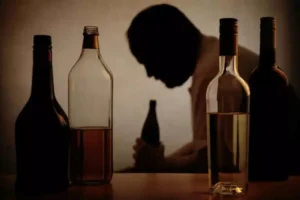
This highlights the fact that many people may see alcohol consumption as a coping mechanism to deal with traumatic experiences. It is usually characterised by binge drinking, where one consumes a large quantity of alcohol in a short period of time. Various traumatic events in history, such as combat threats, life-threatening accidents, and sexual abuse, have significantly contributed to the development of PTSD and alcohol addiction. Unlike https://ecosoberhouse.com/ AUD, PTSD has only been included in the DSM since the third edition. (A, B) line graphs showing between control and MBO group mean accuracy (%) for freely recalled words in the depth of encoding task, both before and after ingesting alcohol. (A) displays data for deep and shallow conditions collapsed across delay, whereas (B) shows the differences between immediate and delayed recall conditions, collapsed across deep and shallow.
Multidimensional impulsivity as a mediator of early life stress and alcohol dependence
About two decades ago, the concept of memory reconsolidation — a process where the mere act of recalling a memory can edit it — landed in the mainstream and bred a misconception. Reconsolidation only occurs under certain circumstances, but a flurry of studies and media coverage led the general public to believe ptsd alcohol blackout that our memories can’t be trusted. Deborah Ramirez, who came forward Sunday, alleged that Kavanaugh exposed himself to her during a college party. She recalled being heavily intoxicated at the time, and later required six days of self-reflection and a lawyer consultation to feel confident about her memories.
Defining Post-Traumatic Stress Disorder

Recently, Lindqvist et al. [32] reported that the inflammatory rise in PTSD among war veterans could not be explained by early life stress or depressive symptomatology, suggesting independent associations between immune activation and PTSD pathophysiology. Although international research on alcohol-induced immune changes, the immune mechanisms for alcohol drinking behavior, and immune changes in PTSD abounds, we are not aware of studies that specifically examine inflammation in the context of AUD-PTSD comorbidity. Moreover, there is a dearth of knowledge on the relationships between PTSD and other psychiatric conditions in non-Western settings. Addiction to alcohol and PTSD (Post-Traumatic Stress Disorder) are a tragically common pairing, especially among veterans. PTSD is a mental health condition occurring in people after they have experienced a major traumatic event.
- If you’re experiencing a blackout or brownout, you’re at higher risk for falling, injury and unwanted or unsafe sexual experiences.
- These papers both showed that alcohol impaired memory for contextual details (i.e., the context surrounding or embedded with a to be remembered item) in participants who experienced blackouts [29, 30].
- As the hippocampus works to log events, its memory cells are communicating with each other and changing through a process called synaptic plasticity.
- However, this association was no longer significant when the analysis controlled for other co-occurring mental health conditions in addition to the sociodemographic characteristics.
- ● Alcohol use is often viewed by military combat veterans as an effective and socially acceptable way to cope with PTSD symptoms and related distress.
- Are there particular traumatic experiences that provide some resilience against developing AUD?
The Role of Dissociation in PTSD Blackouts
It’s because they address both conditions simultaneously to ensure complete recovery. It is crucial for individuals, especially military veterans and those with substance use disorder, to prioritise seeking treatment for both PTSD and alcohol dependency concurrently. During such an instance, one may unknowingly put themselves in a harmful situation. This can potentially lead to new traumatic experiences or reactivation of past trauma memories, thereby intensifying PTSD symptoms. How different are the outcomes of the disorders when one or the other develops first?
Disorder Definitions

Towards our goal of understanding memory performance in the aftermath of an MBO event, we conducted a series of standard episodic memory paradigms on participants who reported experiencing at least 9 MBOs in the preceding 12-months (MBO group). We compared their performance with a control group who have never experienced memory loss as a result of binge-drinking. We employed a free recall task as a baseline for memory retrieval performance, and a serial recall task to assess memory for events in their order of occurrence [36]. We also added a depth of encoding manipulation to an immediate and delayed free recall task which compared recall for items embedded within a sentence context (deep encoding condition) vs. orthographic changes in items (shallow encoding condition). We did this to investigate if recall for items embedded in a context is affected more by an alcohol-induced MBO compared to our shallow encoding manipulation.
- It is thus is a robust test of the prospective association between PTSS and subsequent dependence syndrome symptoms at the within-person level.
- Eyewitness testimony is most reliable soon after an incident and when people are sober, because of the general memory deficits caused by booze.
- A complementary perspective emphasizes the predominance of associative processes and heightened reactivity to stimuli (Carver, Johnson, & Timpano, 2017; Lieberman, 2007).
- This helps patients not only overcome their addiction but also deal with the underlying trauma that might contribute to their substance use.
- Additionally, the conditional nature of the disorders, based on the exposure to an event or a substance, makes this a complex relationship for analysis, interpretation, and intervention for treatment.
Post-Traumatic Stress Disorder (PTSD) and Alcohol Addiction
Alcohol problems are more common for those who experience trauma if they have ongoing health problems or pain. Studies show that the relationship between PTSD and alcohol use problems can start with either issue. For example, people with PTSD have more problems with alcohol both before and after they develop PTSD.

Biological Connection Between PTSD and Alcohol Use Disorder

Novel Associations Among Trauma, Mindfulness, and Impaired Control Over Alcohol Use
- Time of testing after experiencing an MBO may also serve to weaken any after-MBO effects, i.e., differences between baselines and after experiencing a blackout.
- Van de Loo et al. [62] show that the most important determinant of hangover severity is a participant’s own perceived levels of alcohol intoxication.
- Addressing PTSD blackouts requires a comprehensive approach that targets both the underlying trauma and the specific symptoms of dissociation and memory loss.
- Women, however, are twice as likely to develop PTSD and are 2.4 times more likely to struggle with alcoholism as a result.
- The autoregressive parameter indicates the extent to which deviations from the individual’s expected value at time t-1 (i.e., yesterday) predict subsequent behavior at time t (today).